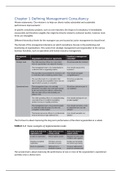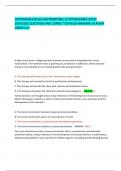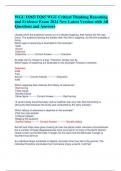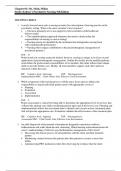Samenvatting
Summary Strategic Management Consultancy (minor and course): An Introduction to Management Consultancy, ISBN: 9781446256138
- Instelling
- Erasmus Universiteit Rotterdam (EUR)
Summary of the Introduction of Management Consultancy book from Marc Baaije. This book is used for many courses (and minors). It contains some additional notes not included in the book but gained through experience in courses and contains all relevant information for strategic consultancy a...
[Meer zien]















